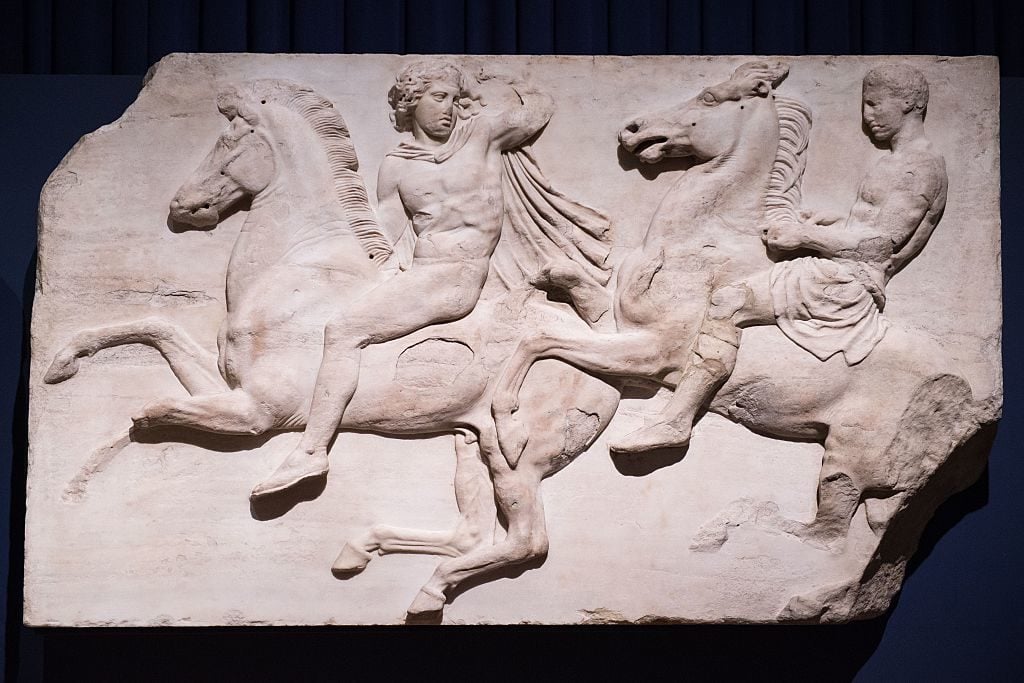Archaeology & History
In a Breakthrough, Italy Will Return a Piece of the Parthenon Frieze to Greece Under a Long-Term Loan Agreement
Could this be a way for Greece to finally reunite the Parthenon?

Could this be a way for Greece to finally reunite the Parthenon?

Amah-Rose Abrams

The Greek Ministry of Culture and Sports has announced that Italy will return a fragment of the Parthenon Frieze, which has been on loan as part of a cultural exchange. At a November 30 meeting of the Central Archaeological Council, journalists were informed that the transaction would be initiated at its next meeting, scheduled to take place before the end of 2021. The resolution of these delicate, yearlong discussions represents a breakthrough for the two nations, both aggrieved by the theft of their peerless wealth of antiquities over the centuries.
The fragment, from stone VI on the eastern frieze of the Parthenon, can currently be seen at the Museo Archeologico Antonio Salinas in Palermo, Sicily. Under conditions dictated by Italian law, the piece will travel back to Greece on a four-year loan, with the intent to extend for a further four years.
In return, the Acropolis Museum will send the Palermo institution a headless statue of the goddess Athena, according to the Archeology.wiki blog. The statue will be replaced by a protogeometric vase after a four-year period, matching the amount of time the Parthenon Frieze remains in Greece.
Greece offered similar deal to the U.K. in November, seeking the return of the Parthenon Marbles. Amid the long-running and contentious debate over repatriation for pieces of the Parthenon held by the British Museum, the U.K. prime minister’s office announced that the decision will be delegated from the government to the museum’s board of trustees. But without any legislative update to existing deaccessioning laws, the board is in fact powerless to return anything at all, especially pieces the museum maintains were obtained legally, not looted. However, documents that emerged last week suggest that the U.K. may have more discretionary power than it publicly admits: they establish that official policy at the time of their writing, in 1991, was to obfuscate, because the government ‘didn’t want to’ return the ancient items to Greece.